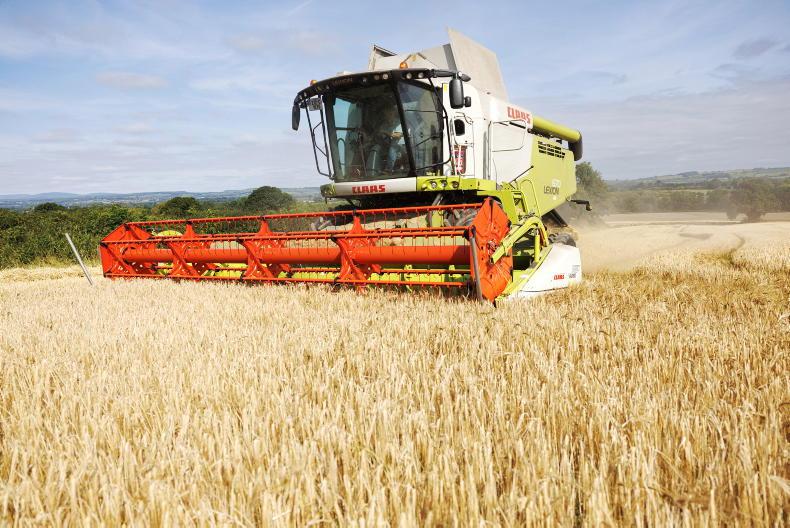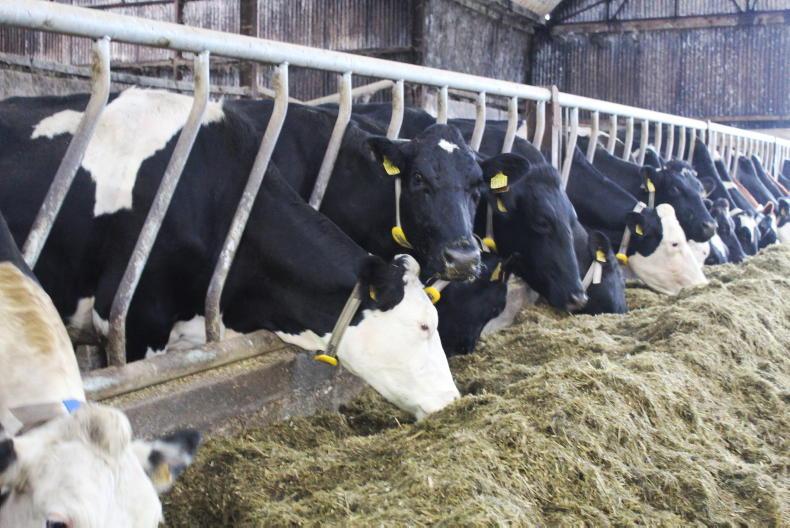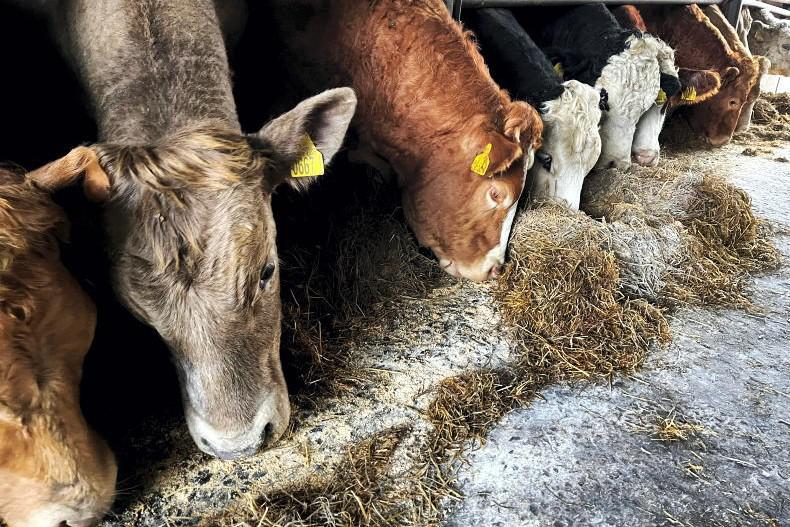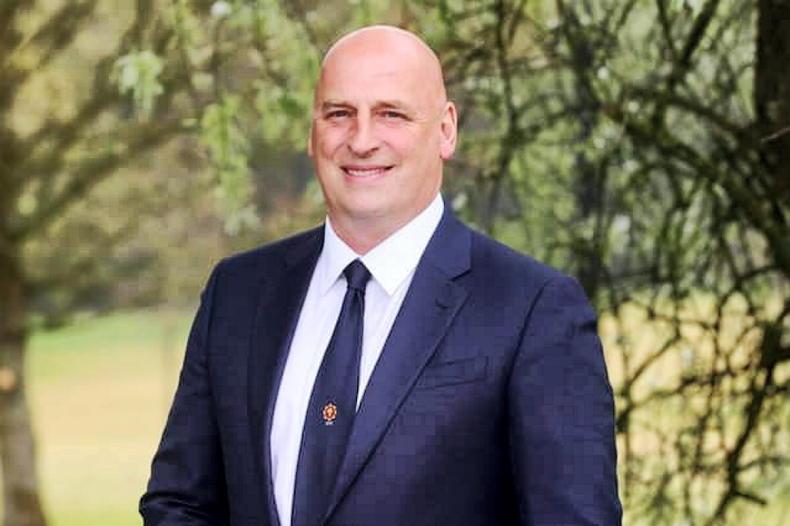It was left up to those with backgrounds in farming and agricultural science to inject some realism into a conference organised by the various environmental groups in Belfast on Tuesday.
A re-occurring theme at the event was that NI farmers should drastically reduce meat and dairy production to cut greenhouse gas emissions and free up land for environmental projects.
“We need to remember, in NI we are pretty good at growing grass, and we are pretty good at producing low-carbon meat and milk from that grass,” said Professor Elizabeth Magowan from the Agri Food and Biosciences Institute.
Backing this up, Magowan presented figures which showed the top 10% of dairy farmers globally produce milk with a carbon footprint of 1.7kg/litre, but the NI average goes beyond this and sits at 1.2kg/litre.
Demand
UFU president David Brown pointed out that global demand for meat and dairy products is rising and all forecasts indicate that this trend is set to continue.
“Fundamentally, that meat has to be produced somewhere. We in NI and western Europe are producing meat at less than half of global average emissions, so my argument is that we should be producing that meat here,” he said.
The Fermanagh farmer also argued that the farmed landscape in NI is able to provide habitat for wildlife and address biodiversity loss.
“My own 200-acre farm has 67 different fields. I have loads of hedgerows and trees. It is very, very different to middle England and the large arable fields that are there,” Brown said.
Livestock cuts
A report was launched at the event which used economic modelling to estimate the impact of reducing stocking rates on two suckler and sheep farms in NI.
The exercise concluded that both farms would make more profit if they cut livestock numbers, continue to claim Basic Payment, and maximise available money from the Environmental Farming Scheme (EFS).
When asked for his reaction, UFU deputy president William Irwin suggested it is unlikely to be a business move that will appeal to many farmers in NI.
“There is a lot of nervousness around future agricultural support. I don’t think there are many farmers that confident that there will be a long-term funding model put in place,” he said.
Penalties
David McBride, a hill farmer from Co Antrim who was one the case study
farmers in the report, was very clear that he did not want to get further involved in EFS.
“We were doing everything we possibly could, and we racked up £10,500 worth of penalties in the scheme. To say it’s disappointing is an understatement,” he said.
“DAERA has to do an awful lot of work to try and work with farmers, rather than be the policeman of agriculture,” he added.
Progress with
genetics and
sustainability bodies
There has been progress with rolling out several long-awaited initiatives for the NI farming industry, the chief executive of the NI Dairy Council has suggested.
Speaking in Belfast, Dr Mike Johnston said industry representatives have been working with DAERA “for a number of years” to develop a ruminant genetics improvement programme.
“We have set up an industry-led company, Sustainable Ruminant Genetics, which is chaired by local farmer Victor Chesnutt and is represented by the dairy, beef and sheep sectors.The organisation will be able to develop and leverage the potential of genetics to help us on our quest for more sustainable production,” Johnston said.
In addition, the Dairy Council chief said work is ongoing to set up a “diamond structure” which will “help direct and facilitate research” for the NI agri food industry. It is concept that was recommended in an independent review led by Sir Peter Kendall, published last year.
Finally, Johnston confirmed progress has also been made with setting up a new sustainability body for NI agriculture. He said an interim board has been established with the aim of putting a permanent board in place by the end of this year.
“It will bring together data that will be invaluable when it comes to policy formulation, influencing research, and setting the direction of our industry,” Johnston said.
It was left up to those with backgrounds in farming and agricultural science to inject some realism into a conference organised by the various environmental groups in Belfast on Tuesday.
A re-occurring theme at the event was that NI farmers should drastically reduce meat and dairy production to cut greenhouse gas emissions and free up land for environmental projects.
“We need to remember, in NI we are pretty good at growing grass, and we are pretty good at producing low-carbon meat and milk from that grass,” said Professor Elizabeth Magowan from the Agri Food and Biosciences Institute.
Backing this up, Magowan presented figures which showed the top 10% of dairy farmers globally produce milk with a carbon footprint of 1.7kg/litre, but the NI average goes beyond this and sits at 1.2kg/litre.
Demand
UFU president David Brown pointed out that global demand for meat and dairy products is rising and all forecasts indicate that this trend is set to continue.
“Fundamentally, that meat has to be produced somewhere. We in NI and western Europe are producing meat at less than half of global average emissions, so my argument is that we should be producing that meat here,” he said.
The Fermanagh farmer also argued that the farmed landscape in NI is able to provide habitat for wildlife and address biodiversity loss.
“My own 200-acre farm has 67 different fields. I have loads of hedgerows and trees. It is very, very different to middle England and the large arable fields that are there,” Brown said.
Livestock cuts
A report was launched at the event which used economic modelling to estimate the impact of reducing stocking rates on two suckler and sheep farms in NI.
The exercise concluded that both farms would make more profit if they cut livestock numbers, continue to claim Basic Payment, and maximise available money from the Environmental Farming Scheme (EFS).
When asked for his reaction, UFU deputy president William Irwin suggested it is unlikely to be a business move that will appeal to many farmers in NI.
“There is a lot of nervousness around future agricultural support. I don’t think there are many farmers that confident that there will be a long-term funding model put in place,” he said.
Penalties
David McBride, a hill farmer from Co Antrim who was one the case study
farmers in the report, was very clear that he did not want to get further involved in EFS.
“We were doing everything we possibly could, and we racked up £10,500 worth of penalties in the scheme. To say it’s disappointing is an understatement,” he said.
“DAERA has to do an awful lot of work to try and work with farmers, rather than be the policeman of agriculture,” he added.
Progress with
genetics and
sustainability bodies
There has been progress with rolling out several long-awaited initiatives for the NI farming industry, the chief executive of the NI Dairy Council has suggested.
Speaking in Belfast, Dr Mike Johnston said industry representatives have been working with DAERA “for a number of years” to develop a ruminant genetics improvement programme.
“We have set up an industry-led company, Sustainable Ruminant Genetics, which is chaired by local farmer Victor Chesnutt and is represented by the dairy, beef and sheep sectors.The organisation will be able to develop and leverage the potential of genetics to help us on our quest for more sustainable production,” Johnston said.
In addition, the Dairy Council chief said work is ongoing to set up a “diamond structure” which will “help direct and facilitate research” for the NI agri food industry. It is concept that was recommended in an independent review led by Sir Peter Kendall, published last year.
Finally, Johnston confirmed progress has also been made with setting up a new sustainability body for NI agriculture. He said an interim board has been established with the aim of putting a permanent board in place by the end of this year.
“It will bring together data that will be invaluable when it comes to policy formulation, influencing research, and setting the direction of our industry,” Johnston said.









SHARING OPTIONS